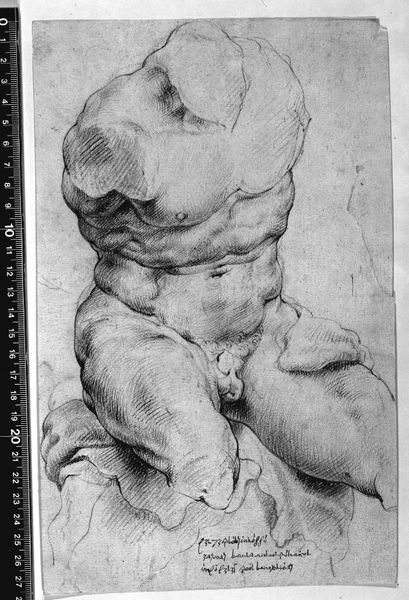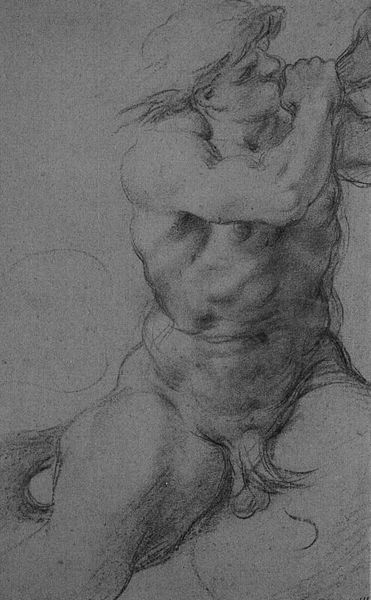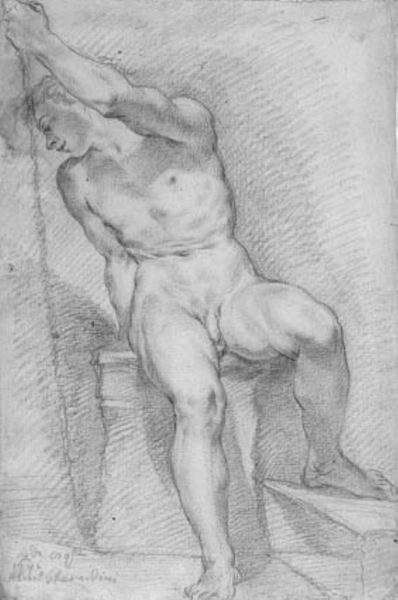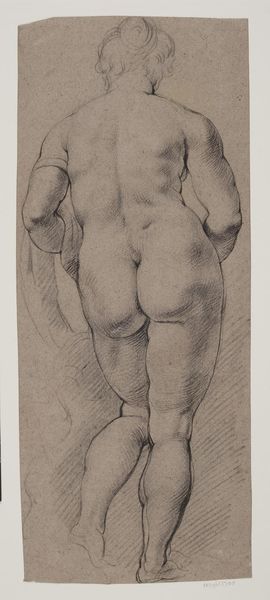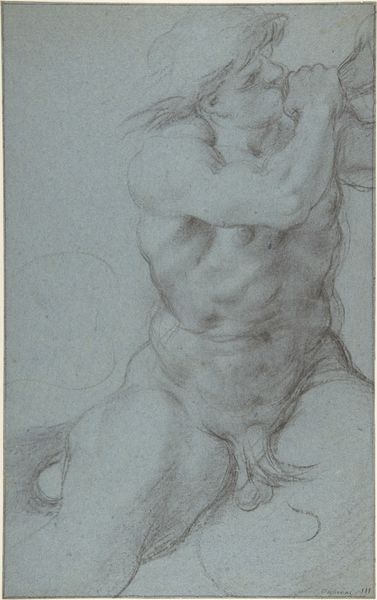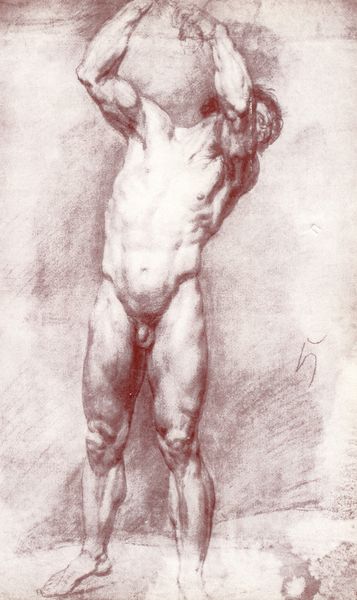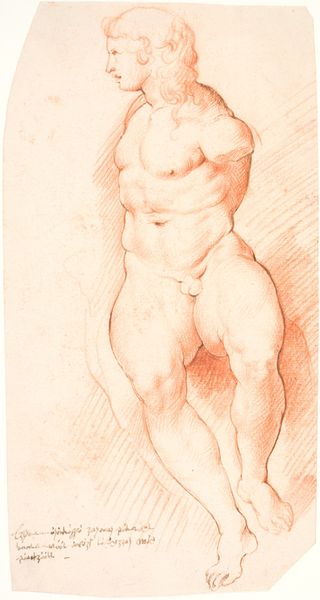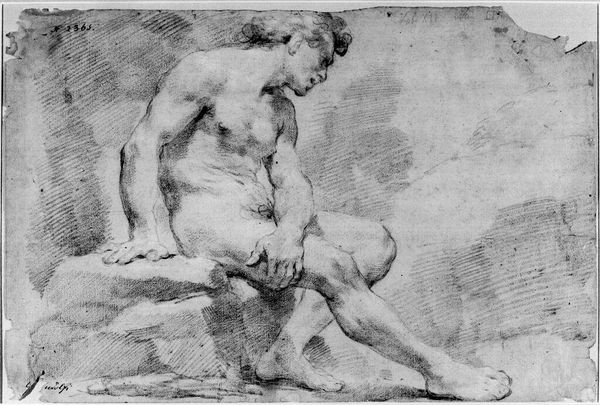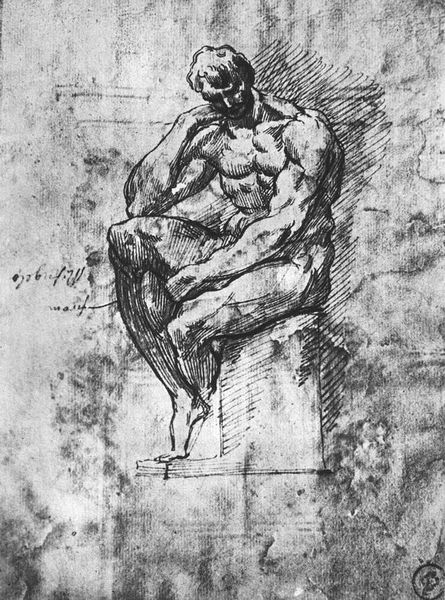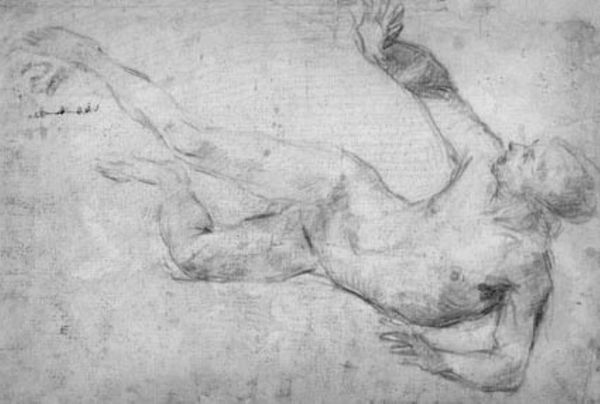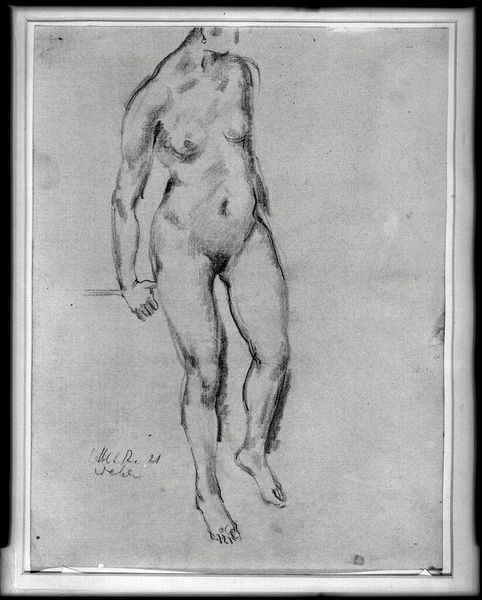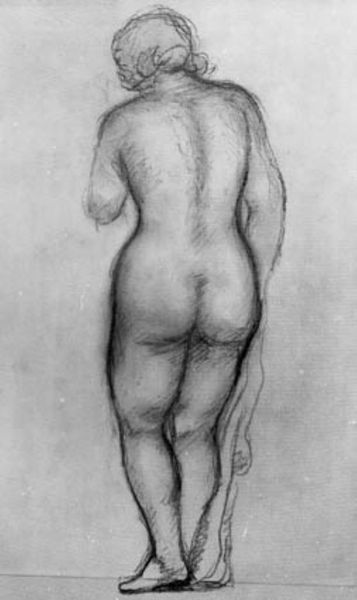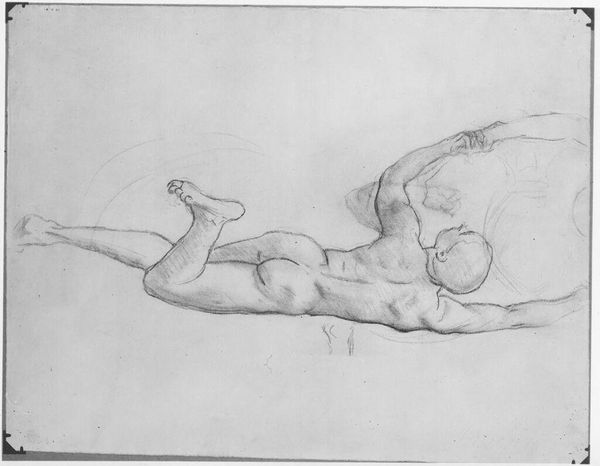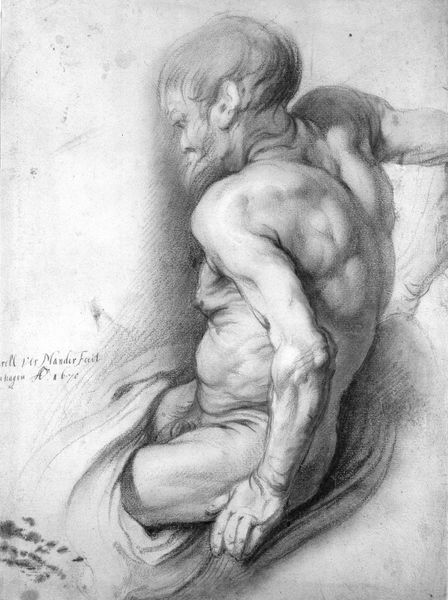
Galleren og hans hustru (gallerens torso). Efter en antik skulptur 1628 - 1630
0:00
0:00
drawing, pencil
#
pencil drawn
#
drawing
#
charcoal drawing
#
figuration
#
11_renaissance
#
pencil drawing
#
pencil
#
academic-art
#
italian-renaissance
#
nude
Dimensions: 290 mm (height) x 223 mm (width) (bladmaal)
Editor: This is "Galleren og hans hustru (gallerens torso). Efter en antik skulptur," a drawing by Willem Panneels from the late 1620s. It's quite striking – a very muscular torso rendered with such precision in pencil. The shading gives it so much depth. What stands out to you? Curator: It’s a powerful depiction of the male form, immediately drawing on classical ideals of beauty and strength. But, it goes deeper than just aesthetics. Look at the dramatic lighting and how the figure dominates the space; consider what the deliberate use of shadow might evoke? What classical archetype does the contorted musculature remind you of? Editor: Well, seeing the muscles, I’m thinking of the hero Hercules and stories of strength and overcoming adversity. The shadows feel intense, creating drama... a sort of tension in the body. Does that interpretation resonate with you? Curator: Absolutely! Hercules embodies the ideal human form, but is often also portrayed battling internal demons. Notice how Panneels references a fractured sculpture: it underscores human fallibility even within an idealized form. Are there similar allusions in contemporary depictions of power? Editor: That’s a great point! Today, we still use athletic bodies to represent strength, though less in art. Maybe sports figures become our Hercules figures, constantly proving themselves in very public battles? Curator: Exactly. Consider how societal values become encoded in these depictions, whether its moral strength in the Renaissance or physical prowess now. Each detail reinforces this cultural narrative through visual form. Editor: That reframing helps me see how much intention can exist in a seemingly straightforward drawing. It definitely highlights the continuity between classical ideals and contemporary obsessions with the body. Curator: Indeed! And how an image can become a mirror reflecting not just an aesthetic ideal, but also collective cultural values.
Comments
No comments
Be the first to comment and join the conversation on the ultimate creative platform.
